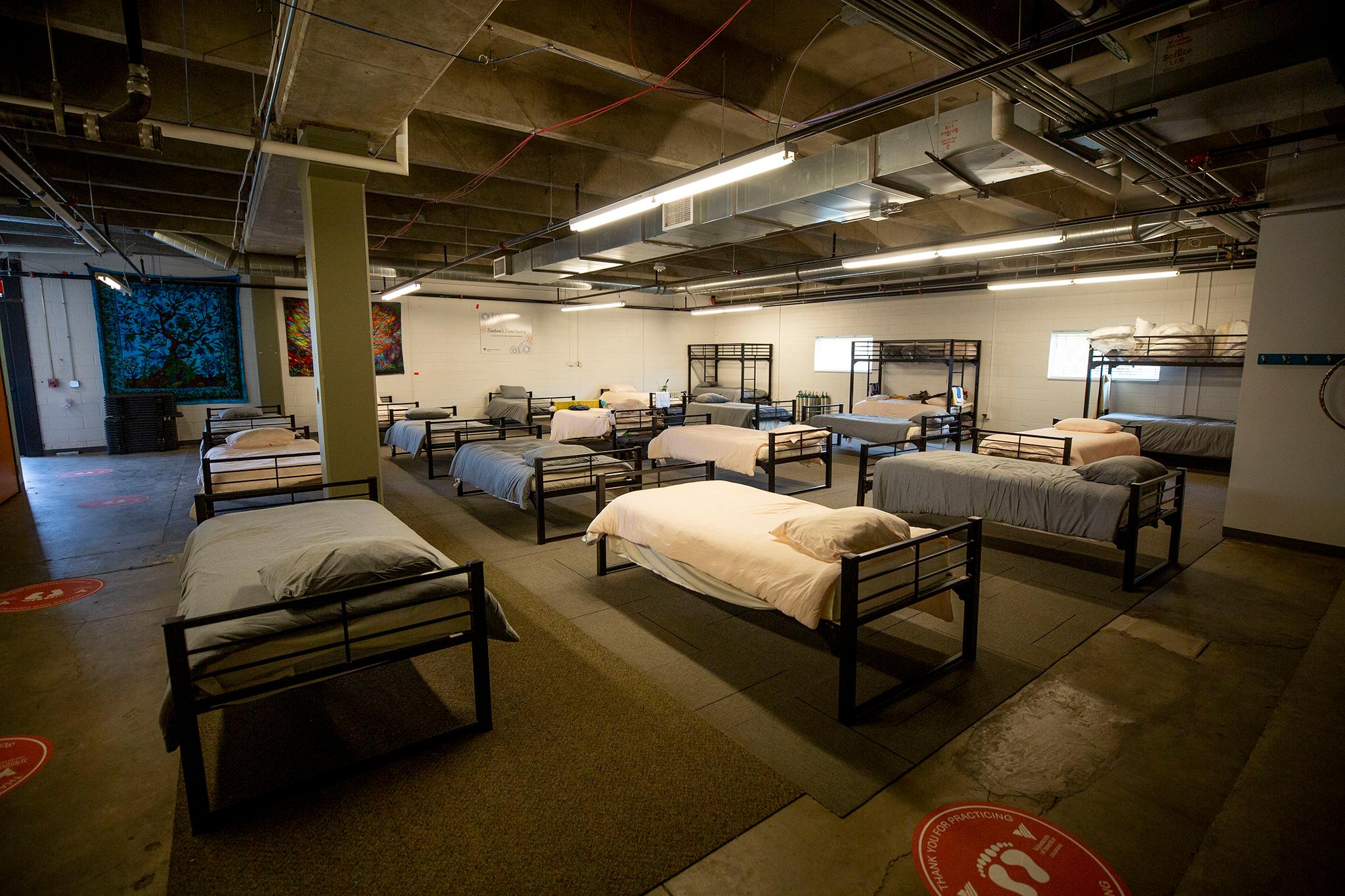Denver's City Council is asking voters to increase the sales tax by 0.25 percent for programs to get people out of homelessness.
The tax, amounting to 2.5 cents on every $10 purchased, would raise an estimated $40 million a year (likely less in the first year because of the current pandemic-caused economic downturn) for a Homelessness Resolution Fund.
Kaya Wertz, a Colorado Coalition for the Homeless social worker, said the proposal was a matter of life and death. She described clients who have died of exposure in Denver.
With winter coming, Wertz said during the public comment period ahead of Monday's council meeting, "we do not have indoor space."
Earlier this month, City Council referred another proposal for 0.25 percent in new sales taxes to voters, to pay for programs to fight climate change. If both the climate change and homelessness measures are passed, Denver shoppers would be paying a total of 8.81 percent in sales taxes, up from the current 8.31 percent.
Before Monday night's vote, District 9 City Councilwoman Candi CdeBaca questioned the proposal's sponsor, City Councilwoman-at-large Robin Kniech, about why she chose a tax seen as harder for lower-income people -- including those experiencing homelessness -- to bear. Kniech said that the exemption of food, medicine, fuel and feminine hygiene products softened the impact and that the city had limited options to raise sufficient funds.
District 2 Councilman Kevin Flynn said he shared concerns about the regressive nature of a sales tax, but supported the move to address homelessness. Flynn said he opposes the proposal to raise the tax to fight climate change because he "wanted to conserve public support for this (homelessness) measure."
Tami Door, president and CEO of the Downtown Denver Partnership, said the group supported the proposal.
"We believe that the approach to use a sales tax as a funding source is the right approach," Door said in an interview before Monday's vote, adding that it was a way for both residents and visitors to contribute.
Door said it had not yet been decided how the Downtown Denver Partnership might contribute financially to the campaign to raise funds to fight homelessness.
According to campaign finance reports, the Downtown Denver Partnership contributed $200,000 to the $2 million campaign that last year helped defeat Initiative 300.
John Parvensky, CEO and president of the Colorado Coalition for the Homeless, told City Council members earlier this month that he opposed 300, which voters overwhelmingly rejected, because he did not believe it was the way to address homelessness. Kniech's proposal, Parvensky said, was a way to "do better," echoing the slogan of 300's main opponents.
The advocacy group Denver Homeless Out Loud got 300 on the ballot, saying it could safeguard the basic rights of people without homes as the work to end homelessness continued. Terese Howard, an activist with Denver Homeless Out Loud, said the sales tax proposal could be helpful. Howard said her group wanted to ensure that people who have experienced homelessness, not just service providers, would have a say in how any money raised would be used.
"The money needs to go to housing," Howard said.
The Delores Project, which provides shelter and transitional housing for women and transgender individuals, welcomed the proposal, saying in a statement that it was "optimistic that the people of Denver will choose to step up to address the homelessness crisis."
"We also hope that business groups like the (Downtown Denver) Partnership will put their money toward solutions, rather than campaigns, and share the burden with consumers," the Delores statement added.
Kniech's proposal would help Denver turn innovations such as its social impact bond into programs that can serve more people, said Kinsey Hasstedt, the Denver-based state and local policy program director for Enterprise Community Partners, a national builder and financer of below-market housing. The social impact bond has shown promise in getting people who have been on the streets for years into housing, Hasstedt said during the public comment period of an earlier City Council committee hearing on the Homelessness Resolution Fund.
Kniech said Monday night that Denver has "models that can work. What we don't have is the resources to take this to the scale that we need."












